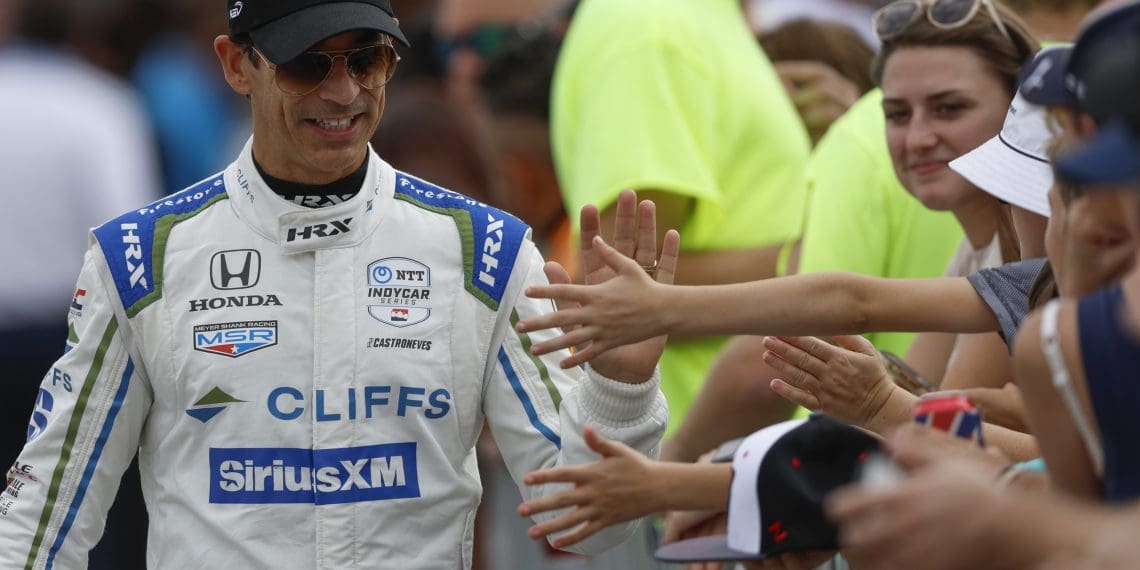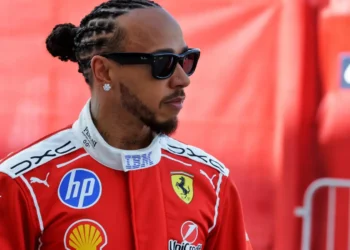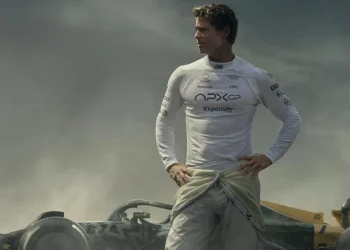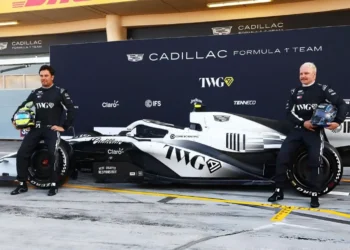The NASCAR community is abuzz with both excitement and frustration following the announcement of the Open Exemption Provisional (OEP) rule, which guarantees Helio Castroneves a starting spot in the 2025 Daytona 500—even if he fails to qualify outright. The four-time Indy 500 champion’s participation as Trackhouse Racing’s Project 91 entry has generated considerable anticipation, but the rule change has sparked debate over its fairness and the loss of traditional qualifying drama.
The Rule That Changed the Game
The new OEP rule allows a “significant contributor” from another motorsport series to claim a 41st entry at the Daytona 500 if they fail to secure one of the 40 spots on merit. While the rule aims to attract crossover talent and boost viewership, many argue that it undermines NASCAR’s competitive integrity.
Veteran journalist Jeff Gluck weighed in, pointing out that while Castroneves’ presence is exciting, the guaranteed spot strips the tension from the Duel races, traditionally a key source of qualifying drama.
“If you were hoping to tune into the traditional Duel races to see if Castroneves could make the field, that drama is already gone,” Gluck remarked.
The rule’s introduction, while well-intentioned, has left fans and pundits questioning if NASCAR is prioritizing marketing opportunities over maintaining the sanctity of its competition.
Helio’s Dream Opportunity
For Castroneves, this marks the culmination of years of effort to break into NASCAR. The 48-year-old Brazilian driver, whose illustrious IndyCar career includes four Indianapolis 500 victories, is ecstatic about his chance to race in NASCAR’s crown jewel event.
“Never in my wildest dreams did I think I would enter a NASCAR race, certainly not the Daytona 500 with a team like Trackhouse Racing,” Castroneves said, thanking sponsors Wendy’s and team owner Justin Marks for making his NASCAR debut possible.
Despite his guaranteed spot, Castroneves has emphasized his desire to earn his place on merit through strong performances in the Duel races and qualifying sessions.
Fan Backlash: Is NASCAR Losing Its Core Values?
The announcement has polarized the NASCAR fanbase. Many argue that the OEP rule undermines the spirit of competition and denies smaller teams and drivers a fair shot at the Daytona 500 grid. Others see the move as a necessary step to grow the sport by welcoming high-profile talents from other motorsport disciplines.
One vocal critic expressed on social media:
“If Helio wants to race, he should earn it. A guaranteed spot goes against everything NASCAR is about—every driver fighting for their position.”
Conversely, some fans are excited to see a global icon like Castroneves compete on NASCAR’s biggest stage. They view his inclusion as a way to attract new viewers and elevate the sport’s profile.
A Missed Opportunity for Jimmie Johnson?
The rule change also raised eyebrows due to its exclusion of NASCAR legends like Jimmie Johnson, a seven-time Cup Series champion. Many fans questioned why Johnson, who is set to compete with Legacy Motor Club, doesn’t receive the same guarantee.
Former NASCAR driver Kenny Wallace offered a blunt explanation:
“Jimmie Johnson is a legend, but he’s not going to draw the crowd that Helio Castroneves would. That’s just the cold, hard fact.”
This disparity has only fueled criticism of the OEP rule, with fans arguing that NASCAR should prioritize its own champions over outsiders.
What’s Next for the 2025 Daytona 500?
Despite the controversy, the stage is set for one of the most competitive Daytona 500 fields in recent history, with over 46 cars vying for 40 spots. Castroneves’ presence will undoubtedly draw attention, but fans will be watching closely to see if he can secure his position on merit during the Duels—or if he’ll need to rely on the OEP rule.
As the motorsport world counts down to the Great American Race, the debate over NASCAR’s balance between tradition and innovation rages on. Will the OEP rule help grow the sport, or has it set a dangerous precedent? One thing is clear: the 2025 Daytona 500 will be a race to remember.










